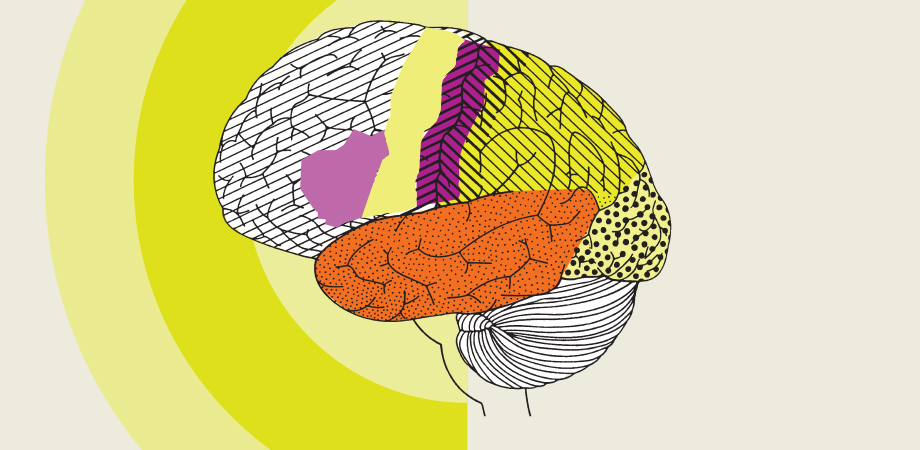Burgeoning field of neuroethics takes cues from big screen fiction

In the 2004 Hollywood blockbuster, Eternal Sunshine of the Spotless Mind, actors Jim Carrey and Kate Winslet play a heartbroken couple trying to erase memories of each other from their brains. They use a technology commercialized by the fictional company, Lacuna, to accomplish this task. During the memory-erasing process we watch as Lacuna employees blithely engage in many unethical behaviors that carry the science-fiction rom-dram's storyline.
But for real-world brain research, there can be no glossing over of the ethical issues that confront scientists and engineers. For them, the growing field of neuroethics is on hand to study and guide the ethical, legal, and societal implications of cutting-edge neuroscience.
The US National Institutes of Health (NIH) Brain Research Through Advancing Innovative Neurotechnologies® (BRAIN) Initiative was created in 2013, nearly 10 years after the release of Eternal Sunshine, by the administration of then US President Barack Obama. He declared an all-out pursuit of breakthroughs in neuroscience to "accelerate the development and application of new technologies that will enable researchers to produce dynamic pictures of the brain that show how individual brain cells and complex neural circuits interact at the speed of thought."
Importantly, Obama also decreed that the ethical challenges this pioneering brain research might encounter should be explored at the federal level.
Today, the NIH spends upwards of $9 billion annually on neuroscience research and, in turn, operates one of the world's premiere neuroethics programs. This NIH program provides proactive, ongoing assessment and management of the neuroethical implications concerning the development and application of new tools and technologies for neuroscience research.
"I think it's important to be very clear-eyed about what we are saying our goal is," says NIH's Khara Ramos, director of the neuroethics program. "And if I look at the BRAIN Initiative as an example, the stated goal is to understand how the brain produces thought perception, emotion, behavior. Now, is that going to happen in the next 10 years? There's no way that we'll be able to solve all of that. But if we're really going to be able to do that, that has some pretty serious ethical, legal, and societal implications."
To tackle emerging issues, Ramos and others in NIH's neuroethics program meet regularly to discuss and better understand the directions of brain research, where the funding calls are being directed, and how the current and proposed technologies may impact society, either today or in the future.
The NIH neuroethics program has published a strategy with guiding principles for how they approach these issues as a funding agency. In addition, Ramos and her colleagues are facilitating collaborations to integrate ethics into neuroscience research, with a clear goal of a future in which neuroethicists are part of research groups working alongside biostatisticians and biomedical engineers.
For example, in a recent meeting where a future research funding direction was being discussed, Ramos made sure the possible ethical implications were discussed at the same time as the scientific roadblocks and possible technological advancements.
"The idea was to capture detailed information about brain function and behavior in real time and be able to correlate and understand causal connections between those two into a sort of data stream," Ramos says. "We're really trying to integrate ethics at every step of our research administration process."
Having neuroethics integrated into research teams as new brain-science tools are built can have a huge impact, Ramos believes. With this shift, she hopes engineers will become more intentional about the technologies they build, which can lead to features like "privacy-by-design" to ensure ethical concerns are minimized. If, for instance, we can build tools to record neurons while a subject is outside of a lab, she says, we should build those tools to allow for the individual to turn off the recording by themselves.
"There's an important piece of understanding what do individuals and what does society want from our technology," Ramos says. "I'm not suggesting that individual engineers are responsible for understanding that or seeking that out. But I think it's important to be curious about what does that mean in practice for me? I think that sort of individual role of being curious about this and seeking out partners who have different kinds of expertise can paint that broader picture of why we are we doing this in the first place."
Assuming the BRAIN Initiative—and similar efforts in neuroscience research—reaches its long-term goal of mechanistic understanding of brain function, there are of course many possible altruistic and uplifting outcomes. But one only has to look again to the Hollywood canon for a list of films that portray potentially problematic scenarios: Inception, The Bourne Trilogy, Memento, and The Manchurian Candidate are a few, perhaps obvious, examples.
The silver screen often points to real-world ethical challenges taken to unrealistic extremes, a problem not lost on Ramos: "Hype is really not helpful either in neuroscience or in neuroethics, but even scientifically unjustified concern can exist in the public. Which can have real implications for science, even if it's completely a nonstarter scientifically."
Dream-erasing movie villains aside, it's easy to see the brain is unlike any other organ in the human body and brain research introduces some very complex questions for the field of neuroethics to grapple with. It's important for researchers and engineers, as well as the public, to think about the implications of science and technology and how to ensure the negative impacts are limited, because, as Ramos says, these questions will not stop: "Cutting-edge science requires cutting-edge ethics, which is to say that, as science advances, our understanding of the ethics of that science, also has to advance."
KEVIN PROBASCO is the SPIE Manager of Technical & Community Communications.
| Enjoy this article? Get similar news in your inbox |
|



